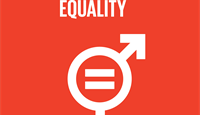
"Gender equality is a fundamental human right [and] a necessary precondition for sustai-nable, people-centred development...”
UNESCO Priority Gender Equality Action Plan, 2019
Gender equality is a fundamental condition for the full enjoyment of human rights by women and men. Despite, the adoption of international legal instruments, inequalities still exist around the world based on gender discrimination. Violence against women, gender-related poverty, exclusion of women from decision-making mechanisms and/or economic and political life constitute important issues that still remain to tackle. Overcoming these inequalities is related to the necessity for wider reforms in social institutions as well as the abolition of gender stereotypes about the roles of the two sexes.
Considering the above-mentioned issues, the Social and Human Sciences Programme of UNESCO contributes towards UNESCO’s priority on gender equality by promoting policy-oriented research, capacity building, training and advocacy for gender equality and women’s rights worldwide.
Moreover, in 2010 the “UN WOMEN” was founded, which constitutes a body of the UN responsible for gender equality and the empowerment of women, and which is in direct cooperation with UNESCO for the coordination of actions on a global level.
In Cyprus, the UNESCO Chair on Gender Equality and Women’s Empowerment of the University of Cyprus is the body, which works on the aforementioned issues. Furthermore, the Cyprus National Commission for UNESCO, following a contest held during the 2008-2009 school year, published children’s stories on the theme of gender equality and gender stereotypes. The stories are available for the public, free of charge, and can be found at the office of the Commission.
More information: